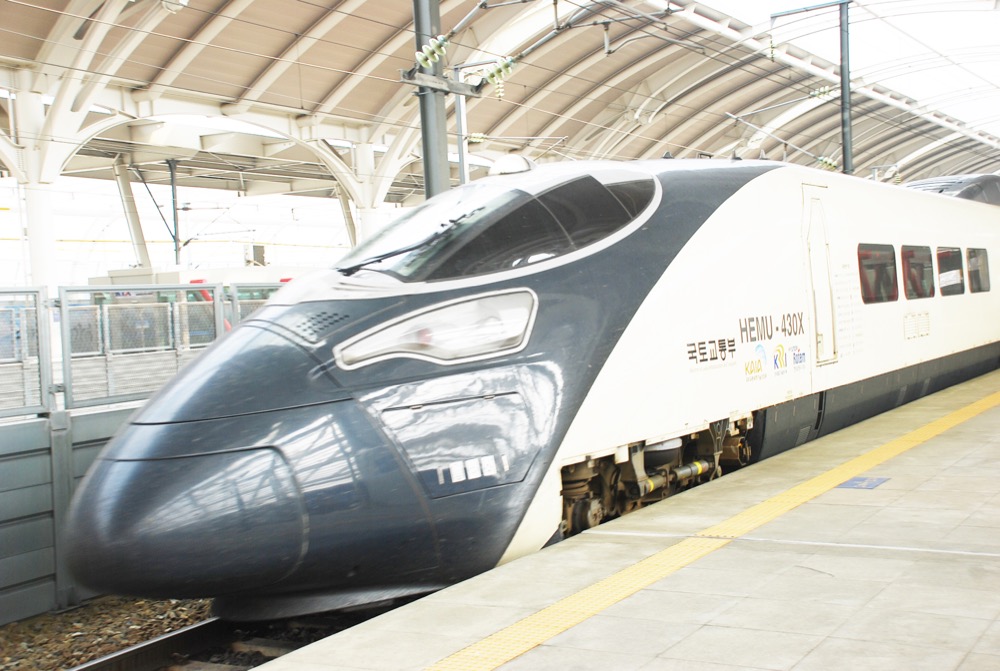On November 11, the Cho Chun Shik Graduate School for Green Transportation (GSGT) gave KAIST students a comprehensive tour at the Korea Railroad Research Institute (KRRI). Students from all engineering departments were welcome to participate in this field tour.

The students had the chance to ride the HEMU-430X (High-speed Electric Multiple Unit 430 km/h eXperimental), a high speed train that can travel up to 430 km/h. Given a rare opportunity, participants were able to experience a 100km experimental run from Osong Station to Gwangmyeong Station. The train is the fourth fastest train in the world, having marked its record speed of 421.4 km/h back in March 2013. The train used in the test run during the tour was safely controlled at 280 km/h due to railroad traffic congestion. It is expected that the train will begin commercial service in 2015, after being subjected to stabilization studies.
Participants were given a ride in the Wireless Low Floor Tram. This new transport system is a battery run, low-speed rail system that is adequate for traffic-heavy city streets. The tram system uses minimum amount of overhead electrical rails by running on battery cells and recharging whenever there is an overhead electrical source available. The system has already proved successful at the 2012 Yeosu EXPO, and is expected to be installed at select cities in Korea.
The KAIST students were also granted unprecedented access to research facilities in KRRI during the tour. The main institute houses large-scale equipment that runs simulations on railroad compartments. The Track Bed Testing Lab, the Structural Testing Lab and the Bogie Testing Lab were some of the facilities toured in this program.
KRRI was established in 1996 and continued its mission to improve the Korean railway system through research. Major milestones were reached, including the development of the High Speed Train HSR-350x prototype in 2004, which became the basis for the KTX-Sancheon. Professor Soon-Man Hong from the KAIST Graduate School for Green Transportation, said to students, “We should not limit our thinking to trains in the field of train transportation. We must consider science as well to improve this technology.” Professor Hong and KRRI organized the KAIST tour program, which may be held again next year.

